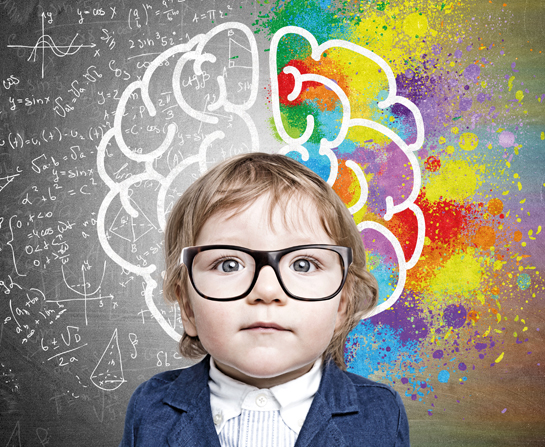Baby’s Best Brain Food?
May 7, 2022 Return

WORDS LIM TECK CHOON
Dr Catherine Limperopoulous, Ph.D.
Director of MRI Research of the Developing Brain
Children’s National
Washington, D.C., US
BREAST MILK is called liquid gold for a good reason. It is a nutrient-rich food constantly changing in composition based on the baby’s nutritional needs, as well as a source of antibodies to help the baby fight off infections. Remarkably, a baby can grow and thrive solely on breast milk alone for the first 6 months of his or her life. That’s how complete breast milk is as a source of energy, nutrients and protection from infectious diseases.
Another fascinating thing about breast milk is how, even today, we are still learning something new about it. This month, let’s take a closer look at some evidence that it can very well be baby’s best choice of nourishment when it comes to brain growth and development.
During the Pediatric Academic Societies (PAS) 2019 Meeting, Dr Catherine Limperopoulous, Ph.D. presented an interesting study in which she was the principal investigator.
WHAT DID THIS STUDY FIND?
Basically, infants who were born prematurely—or preterm babies— tended to have very low birth weight (VLBW). Limperopoulous’ team studied VLBW babies and found that:
Infants who were breastfed showed significantly higher levels of inositol in the frontal white matter part of their brain.1
They also had higher levels of creatine.1
WAIT …
WHAT?
We will get a little technical here, so please bear with us.
There are two types of cells in the brain.
We have the nerve cells or neurons, and everything else called the glial cells. You’ll be surprised to know that glial cells have an important role in our brain health. Increasingly, studies are showing that abnormalities in the glial cells are linked to autism, schizophrenia and other neurological disorders!2
Many nerve fibres are clustered in the region of the brain called the white matter. This region is primarily associated with important functions such as processing of sensory stimuli (sight, hearing, taste, touch and smell) and responding to these stimuli. White matter is also linked to emotional and intellectual development.3

How is all this linked to the study?
Like every other part of the body, the brain is like an engine that has many parts and components, which include the abovementioned inositol and creatine.
Inositol is a substance that helps to regulate fluid balance in the brain. How much inositol is present corresponds to the number of glial cells present in the brain. Hence, higher levels of inositol show more glial cells have been formed in the brain.4
Meanwhile, creatine allows the brain cells to recycle energy. If we observe higher creatine levels in the brain, we can also reasonably deduce that there is greater activity in the brain related to cellular development and maturation.
So, that means …
Yes, this study suggests that babies who are breastfed exhibit improved brain metabolism compared to other babies of similar age who are not breastfed. Brain metabolism involves both the creation of new cells and tissues as well as breakdown of old ones, hence babies who are breastfed are likely to have improved brain growth and cognitive development. HT
If you like this article, do subscribe here.
